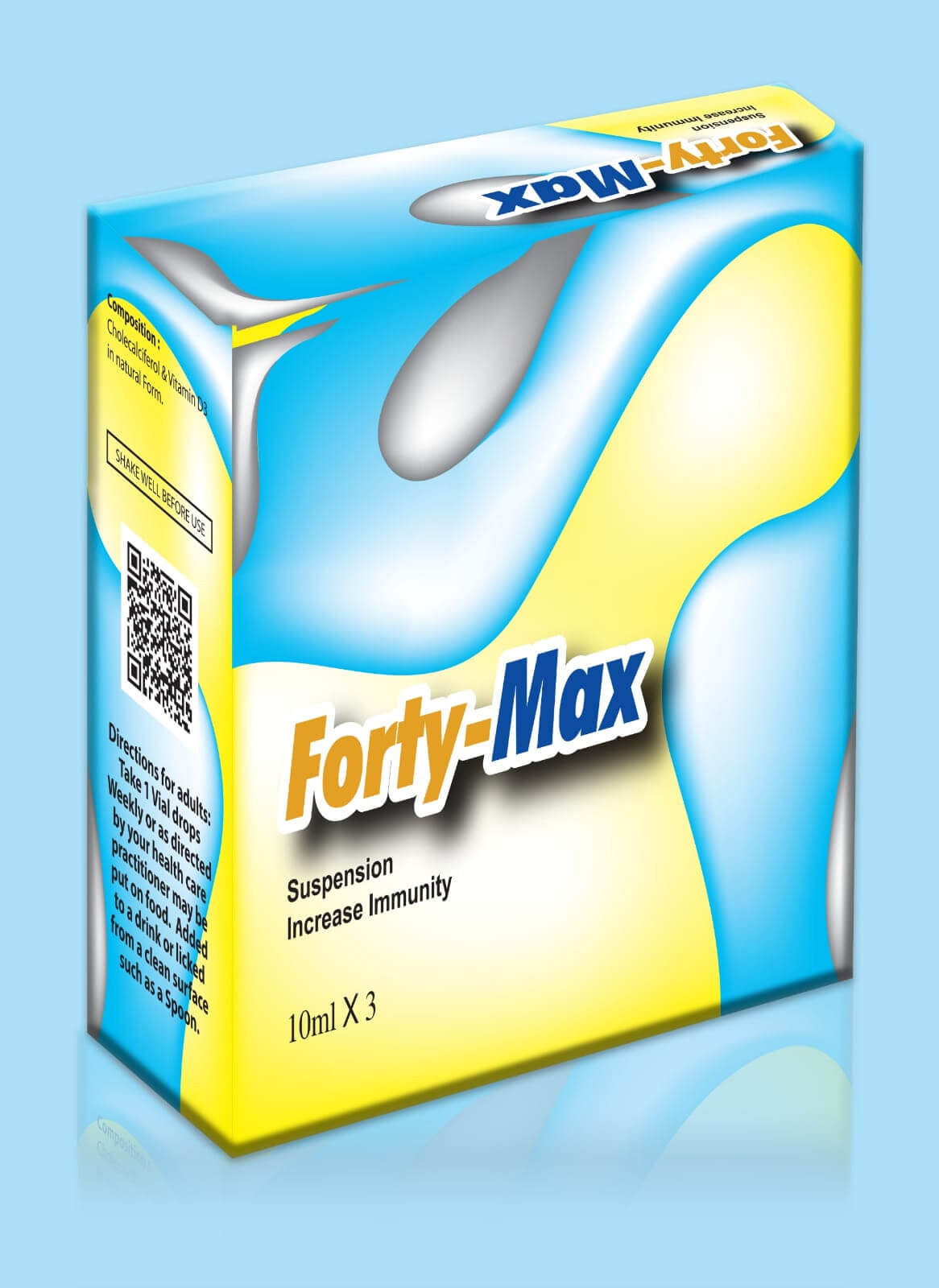
Forty-Max
Suspension Increase Immunity
Cholecalciferol 1000 IU Per Drops
Description: This is used for the treatment or prevention of calcium depletion in patients in whom dietary measures are inadequate. Conditions that may be associated with calcium deficiency include hypoparathyroidism, achlorhydria, chronic diarrhea, vitamin D deficiency, steatorrhea, sprue, pregnancy and lactation, menopause, pancreatitis, renal failure, alkalosis, and hyperphosphataemia. Calcium Carbonate is being used increasingly often to treat hyperphosphataemia in chronic renal failure as well as those on continuous ambulatory peritoneal dialysis (CAPD) and haemodialysis. Many patients are unable to tolerate suficient doses for complete phosphate control and require additional measures such as stringent dietary phosphate restriction or relatively small doses of aluminium hydroxide. Calcium Carbonate containing preparations can provide short-term relief of dyspeptic systems but are no longer recommended for long-term treatment of peptic ulceration glycosides.
Side Effects: Orally administered Calcium Carbonate may be irritating to the Gl tract. It may also cause constipation. Hypercalcaemia is rarely produced by administration of calcium alone, but may occur when large doses are given to patients with chronic renal failure.
Pregnancy & Lactation: Calcium containing drugs have been widely used in pregnancy by way of oral calcium supplementation or antacid therapy. Calcium Carbonate can be used in lactating women too.
Use in Special Populations: Use in children: Calcium carbonate has been extensively studied in children and infants with chronic renal failure and is both safe and effective.
Use in elderly: In case of elderly patients with renal failure when calcium carbonate is taken constipation may be troublesome on for this group. For this reason, monitoring of serum calcium and phosphate is of course indicated for elderly patients
Therapeutic Class:
Pharmacology: Calcium carbonate reacts with gastric acid to produce a salt and water. For calcium carbonate the postulated chemical reaction is: CaCO +2HCl = CaCl+HO+CO. Two grams of calcium carbonate will readily bring 100 ml of hydrochloric acid to a pH above 6. The increase in gastric pH diminish- es the activity of pepsin in the gastric secretion. Up to 30% of the oral calcium load may be absorbed.
Interaction: Calcium Carbonate may enhance the cardiac effects of digoxin and other cardiac glycosides, if systemic hypercalcaemia occurs. Calcium Carbonate may interfere with the absorption of concomi- tantly administered tetracycline preparations and in chronic renal failure modification of vitamin D therapy may be required to avoid hypercalcaemia when Calcium Carbonate is used as the primary phosphate binder.
Contraindications:
Hypercalcaemia
and
hyperparathyroidism
Hypercalciuria and nephrolithiasis
Zollinger-Ellison
syndrome
Concomitant digoxin therapy (requires careful monitoring of serum calcium level)
When
hypercalcaemia occurs, discontinuation of the drug is usually suficient to return serum
calcium concentrations to normal. Calcium salts should be used cautiously in patients with
sarcoidosis, renal or cardiac disease, and in patients receiving cardiac. Minerals in bone
formation, Specific mineral preparations Storage Conditions: Store in a cool, dry place in
controlled room temperature.